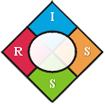The 40th Anniversary of Rough Sets at: The 3rd Polish Conference on Artificial Intelligence PP-RAI’2022 April 25-27, 2022, Gdynia, Poland
The 40th Anniversary of Rough Sets at:
The 3rd Polish Conference on Artificial Intelligence
PP-RAI’2022
April 25-27, 2022, Gdynia, Poland
The Report:
1. Anniversary Panel Session: (The Next) 40 Years of Rough Sets
2. PP-RAI Contest for the Most Influential Article on Rough Sets co-authored by Polish Researchers in 2020-2021
The theory of Rough Sets was founded by Zdzisław Pawlak in order to serve as an efficient framework for data / information / knowledge representation and exploration. Following Professor Pawlak’s seminal paper titled “Rough Sets” published in 1982 in International Journal of Computer and Information Sciences (currently International Journal of Parallel Programming), it is important to discuss the history, the presence, and possible future developments of this theory, as well as its practical applications.
The idea of the panel organized at PP-RAI’2022 was to emphasize that although the world around us becomes more and more complex - by means of, in particular, growing technological opportunities and big data challenges - there will be always a demand for simple and interpretable solutions. At the panel, the following scientists recalled their memories about Professor Pawlak, elaborated on the strongest points of Rough Sets, and discussed the future of Rough Sets in combination with other approaches and technologies:
- Jan Komorowski (Sweden) - panelist
- Witold Pedrycz (Canada) - panelist
- Andrzej Skowron (Poland) - panelist
- Dominik Ślęzak (Poland) - moderator
- Roman Słowiński (Poland) - panelist
The panel slides are available under the following link: PP-RAI 2022 rough set panel.pdf
Moreover, the PP-RAI’2022 organizers asked the panelists to form the Jury of the Contest for the Most Influential Article on Rough Sets co-authored by Polish Researchers in 2020-2021. The Jury examined 20 submissions to the contest (papers devoted to Rough Sets or with significant Rough-Set-related aspects, published in an international scientific journal, co-authored by at least one researcher with at least one Polish affiliation; papers could be also published in 2022 if their preparation started in 2020-2021). Each paper was evaluated by 3 Jury members. Each Jury member reviewed 12 submissions. Each Jury member marked 3 out of 12 papers with a “star of excellence”.
The Award Winners (only 1 paper received 3 stars of excellence):
- María José Benítez-Caballero, Jesús Medina, Eloísa Ramírez-Poussa, Dominik Ślęzak: Rough-set-driven approach for attribute reduction in fuzzy formal concept analysis. Fuzzy Sets and Systems 391: 117-138 (2020)
Distinctions (9 other papers received at least 1 star of excellence):
- Jerzy Błaszczyński, Adiel Teixeira de Almeida Filho, Anna Matuszyk, Marcin Szeląg, Roman Słowiński: Auto loan fraud detection using dominance-based rough set approach versus machine learning methods. Expert Systems with Applications 163: 113740 (2021)
- Patrick Doherty, Andrzej Szałas: A landscape and implementation framework for probabilistic rough sets using ProbLog. Information Sciences 593: 546-576 (2022)
- Mateusz Garbulowski, Klev Diamanti, Karolina Smolińska, Nicholas Baltzer, Patricia Stoll, Susanne Bornelöv, Aleksander Øhrn, Lars Feuk, Jan Komorowski: R.ROSETTA: an interpretable machine learning framework. BMC Bioinformatics 22(1): 110 (2021)
- Łukasz Pałkowski, Maciej Karolak, Jerzy Błaszczyński, Jerzy Krysiński, Roman Słowiński: Structure-Activity Relationships of the Imidazolium Compounds as Antibacterials of Staphylococcus aureus and Pseudomonas aeruginosa. International Journal of Molecular Sciences 22(15): 7997 (2021)
- Barbara Pękała, Teresa Mroczek, Dorota Gil, Michał Kępski: Application of Fuzzy and Rough Logic to Posture Recognition in Fall Detection System. Sensors 22(4): 1602 (2022)
- Małgorzata Przybyła-Kasperek: Coalitions’ Weights in a Dispersed System with Pawlak Conflict Model. Group Decision and Negotiation 29: 549-591 (2020)
- Krzysztof Ropiak, Piotr Artiemjew: On a Hybridization of Deep Learning and Rough Set Based Granular Computing. Algorithms 13(3): 63 (2020)
- Svea Stratmann, Sara A Yones, Mateusz Garbulowski, Jitong Sun, Aron Skaftason, Markus Mayrhofer, Nina Norgren, Morten Krogh Herlin, Christer Sundström, Anna Eriksson, Martin Höglund, Josefine Palle, Jonas Abrahamsson, Kirsi Jahnukainen, Monica Cheng Munthe-Kaas, Bernward Zeller, Katja Pokrovskaja Tamm, Lucia Cavelier, Jan Komorowski, Linda Holmfeldt: Transcriptomic analysis reveals proinflammatory signatures associated with acute myeloid leukemia progression. Blood Advances 6(1): 152-164 (2022)
- Marcin Wolski, Anna Gomolińska: Data meaning and knowledge discovery: Semantical aspects of information systems. International Journal of Approximate Reasoning 119: 40-57 (2020)
The Jury emphasized that all submissions were of very high quality. Therefore, all 10 remaining papers received special Certificates of Participation:
- Piotr Artiemjew, Krzysztof Ropiak: A Novel Ensemble Model - The Random Granular Reflections. Fundamenta Informaticae 179: 183-203 (2021)
- Patrick G. Clark, Cheng Gao, Jerzy W. Grzymała-Busse, Teresa Mroczek, Rafał Niemiec: Complexity of rule sets in mining incomplete data using characteristic sets and generalized maximal consistent blocks. Logic Journal of the IGPL 29(2): 124-137 (2021)
- Adam Grabowski: Automated Comparative Study of Some Generalized Rough Approximations. Fundamenta Informaticae 179: 165-182 (2021)
- Maciej Karolak, Łukasz Pałkowski, Bartłomiej Kubiak, Jerzy Błaszczyński, Rafał Łunio, Wiesław Sawicki, Roman Słowiński, Jerzy Krysiński: Application of Dominance-Based Rough Set Approach for Optimization of Pellets Tableting Process. Pharmaceutics 12(11): 1024 (2020)
- Maciej Kopczyński, Tomasz Grześ: Hardware rough set processor parallel architecture in FPGA for finding core in big datasets. Journal of Artificial Intelligence and Soft Computing Research 11(2): 99-110 (2021)
- Yoshifumi Kusunoki, Jerzy Błaszczyński, Masahiro Inuiguchi, Roman Słowiński: Empirical risk minimization for dominance-based rough set approaches. Information Sciences 567: 395-417 (2021)
- Marko Palangetić, Chris Cornelis, Salvatore Greco, Roman Słowiński: Granular representation of OWA-based fuzzy rough sets. Fuzzy Sets and Systems 440: 112-130 (2022)
- Krzysztof Pancerz: Rough Set Based Description of Plasmodium Propagation. International Journal of Unconventional Computing 15: 287-299 (2020)
- Urszula Stańczyk, Beata Zielosko: Heuristic-based feature selection for rough set approach. International Journal of Approximate Reasoning 125: 187-202 (2020)
- Yuanjian Zhang, Duoqian Miao, Witold Pedrycz, Tianna Zhao, Jianfeng Xu, Ying Yu: Granular structure-based incremental updating for multi-label classification. Knowledge Based Systems 189: 105066 (2020)
